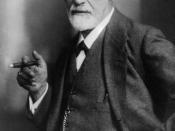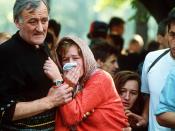#1. In today's society, death and grieving are common experiences. However, Kenneth Doka presents his readers with different types of grief, one that is even more common than the normal form. In his article, Doka discusses "disenfranchised grief"�. Along with this, he speaks of certain problems associated with this type of grief. These problems are serious and may in themselves pose more problems to the bereaved.
It is only logical that we first define "disenfranchised grief"� in order to understand the impact of the problems associated with it. Disenfranchised grief is when a person experiences a sense of loss, but does not have a socially recognized right, role or capacity to grieve. This loss cannot be openly acknowledged, publicly mourned or socially supported.
There are three reasons for disenfranchised grief. The first reason is because the relationship may not be recognized. There may be an assumption held by the bereaved's society that the closeness of the relationship exists only among spouses and/or immediate kin.
Another possibility for this lack of recognition may be because the relationship itself may not be recognized or socially sanctioned, as is the case with extramarital affairs, cohabitation and homosexual relationships. Finally, relationships that existed primarily in the past (i.e. ex-spouses or former friends) may not be recognized as possibilities for grief.
The second reason for disenfranchised grief is because the loss may not be recognized. The loss itself may not be deemed as socially significant as in pre-natal death, abortion or adoption. The loss of a pet also falls into this category. One final part of the loss not being recognized is because the reality of the loss isn't socially validated. There are three "types"� of death that are encompassed here. The first is a "social death"� where the person is physically alive, yet treated...


